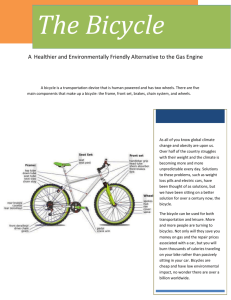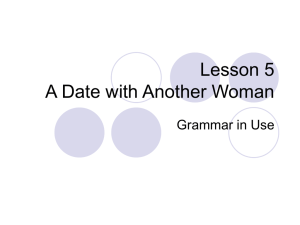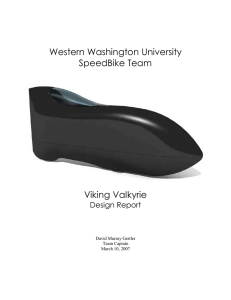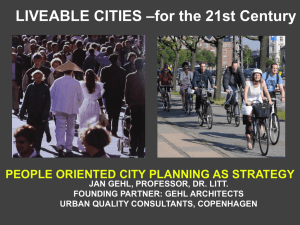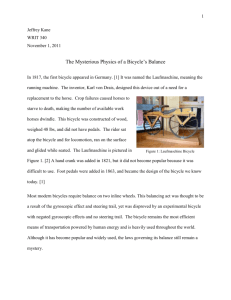Dynamic model of a bicycle Introduction
advertisement
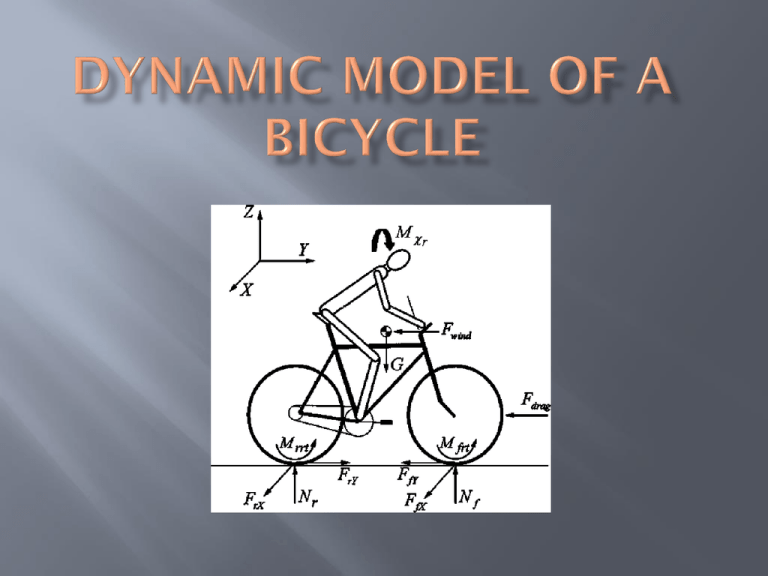
Looking for a dynamic model of a bicycle and rider system: - Simple - Clear - Compliant with Simulink Search Terms: “dynamic bicycle model” “simple linear bicycle model” “basic bicycle model” “Simulink” Models that included a rider (many didn’t) Background and derivation for the Equations of Motion Relatively simple Equations of Motion Obtainable inputs Position Velocity Acceleration “Implementation of the Interactive Bicycle Simulator with Its Functional Subsystems” -Application of article is a bicycle simulator -Simulator relies on dynamic model -Shows equations of motion for 3-D bicycle and rider model (we’ll simplify to 2-D) Center of Mass: C1: Rear wheel C2: Upper portion of the rider C3: Bicycle frame & lower portion of the rider C4: Handlebar assembly C5: Front wheel Rotational Joints: O1: Rear wheel O2: Rider’s torso (about the seat) O3: Stem/headset (for steering) O4: Front wheel Center of Mass: C1: Rear wheel C2: Upper portion of the rider C3: Bicycle frame & lower portion of the rider C4: Handlebar assembly C5: Front wheel Rotational Joints: O1: Rear wheel O2: Rider’s torso (about the seat) O3: Stem/headset (for steering) O4: Front wheel Position Vectors r1 rz1 r2 r1 O1O2 O2C2 r3 r1 O1C3 r4 r1 O1O3 O3C4 r5 r1 O1O3 O3C5 Angular Velocity Linear Velocity vO1 v1 1r1 . 1 rw y vO 2 v1 3 XO1O2 . 2 rw z v2 vO 2 2 XO2O2 v3 v1 3 XO1C3 . 3 rw z vO 3 v1 3 XO1O2 . 4 rw z v4 vO 3 4 XO3C4 . 5 4 fw y4 v5 vO 3 4 XO3O4 Complete Force Balance * Can use the time derivative of velocity to find acceleration Pros: Simplified geometry Clearly defined equations of motion Cons: Doesn’t account for front shock Assumes tires are rigid bodies Questions? Yin, Song, and Yuehong Yin. "Implementation of the Interactive Bicycle Simulator with Its Functional Subsystems." Journal of Computing and Information Science in Engineering. 7. (2007): 160-166.
